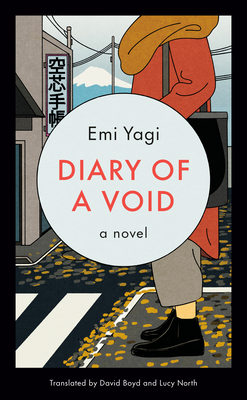Review: Diary of a Void

Viking, 2022
Rage against the patriarchy is nothing new in fiction. In recent years, though, more books published out of Asia have examined women’s frustrating lot. In 2020, Cho Nam-Joo’s internationally bestselling novel Kim JiYoung, Born 1982 arrived in the United States and expertly illustrated the ways in which Korean society limits women. More recently, Maru Ayase’s 2023 novel The Forest Brims Over examines how unconscious gender biases shape art. In 2022, US readers welcomed Emi Yagi’s Japanese novel Diary of a Void, about a woman who decides to feign a pregnancy in order to improve her work conditions.
The protagonist of Diary of a Void is a woman named Shibata. In her mid-thirties and one of few women employees at her company, Shibata is expected to clean up the coffee cups and cigarette butts her coworkers leave behind. Her extra duties don’t end there, and include changing printer ink, answering ringing phones, distributing mail, slicing office pastries and offering them to her colleagues. It’s understood that because she has no children, she is expected to work late into the night. One day, at the end of her rope, Shibata explains to her boss that the smell of coffee mixed with cigarettes triggers her morning sickness. She can’t clean up the conference room, which is how her pregnancy begins.
Diary of a Void’s first chapter is titled Week 5 and as readers we march along with her pregnancy, aware of her lie but also occasionally wondering if perhaps she is carrying a child. Within weeks of announcing she’s expecting, Shibata is relieved of her de facto cleaning responsibilities. She basks in the ability to leave work at 5 pm, a civilized time that allows her access to fresher produce and cuts of meat at the grocery store. She has the energy to prepare herself better meals for dinner and finds she has time to watch movies in the evening, take walks, and soak in the bathtub. Being pregnant turns out to be Shibata’s greatest brainchild.
The word void in the title is a clear nod to Shibata’s empty belly. She is carrying a secret rather than an embryo and as the weeks progress, her secret grows the way a fetus would. She spins a tale that allows her all the benefits that would never be afforded to her were she not a woman with an internal +1.
Yagi’s isn’t necessarily a dark novel, though it is a clear-eyed one with significant introspection. Through her Mommy Aerobic classes, Shibata learns how lonely other mothers-to-be are throughout their pregnancies. When these pregnant friends of hers give birth, their voids manifest as loneliness within their marriages, particularly as they shoulder caretaking responsibilities without much help.
Diary of a Void examines different types of physical and emotional holes. Shibata’s employer is a cardboard paper business that manufactures hollow cores—the things that go inside rolls of paper and tape. Without the secondary item, the cores would be valueless husks. Yagi seems to be asking why women are regarded as husks and only treated with regard when pregnant. Shibata takes full advantage of all the pregnancy perks her job bestows on her in her so-called delicate state. But while society devalues working women, Shibata takes advantage of the entire system. She enjoys her maternal leave, paid in part if not in total, and she returns to her secured job. Her secret affords her a better quality of life, which in a way mirrors creation: of turning a void into a blessing.
